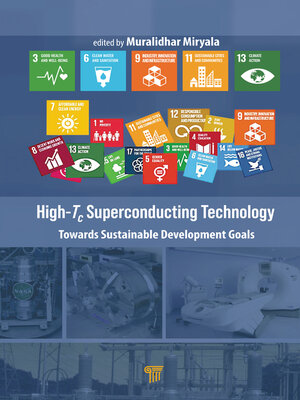High-Tc Superconducting Technology
ebook ∣ Towards Sustainable Development Goals
By Muralidhar Miryala

Sign up to save your library
With an OverDrive account, you can save your favorite libraries for at-a-glance information about availability. Find out more about OverDrive accounts.
Find this title in Libby, the library reading app by OverDrive.



Search for a digital library with this title
Title found at these libraries:
| Library Name | Distance |
|---|---|
| Loading... |
Mitigating climate change, clean environment, global peace, financial growth, and future development of the world require new materials that improve the quality of life. Superconductivity, in general, allows perfect current transmission without losses. This makes it a valuable resource for sustainability in several aspects. High-temperature superconducting (HTSC) materials will be crucial for sustainable everyday applications and more attractive for the United Nations' SDGs. Superconducting magnets can be used as high-field magnets in magnetic resonance imaging, nuclear magnetic resonance, water purification, magnetic drug delivery, etc. Hunger can be partly avoided if there is sustainability in agriculture. In the future, DC electric energy from solar plants in Africa could be transported worldwide, especially to cold countries, using superconducting cables. Superconducting technology is an efficient way to create sustainability as well as reduce greenhouse gases.
This book presents the latest global achievements in the processing and applications of high-Tc superconductors and discusses the usefulness of the SDGs. It summarizes the related advances in materials science and developments with respect to the SDGs. The book also covers large-scale applications of HTSC materials, which will be connected to the SDGs, addressed by several eminent scientists, including Prof. M. Murakami, president, Shibaura Institute of Technology, Japan; Prof. D. Cardwell, pro-vice chancellor, University of Cambridge, UK; and Prof. N. Long, director, Victoria University of Wellington, New Zealand.







